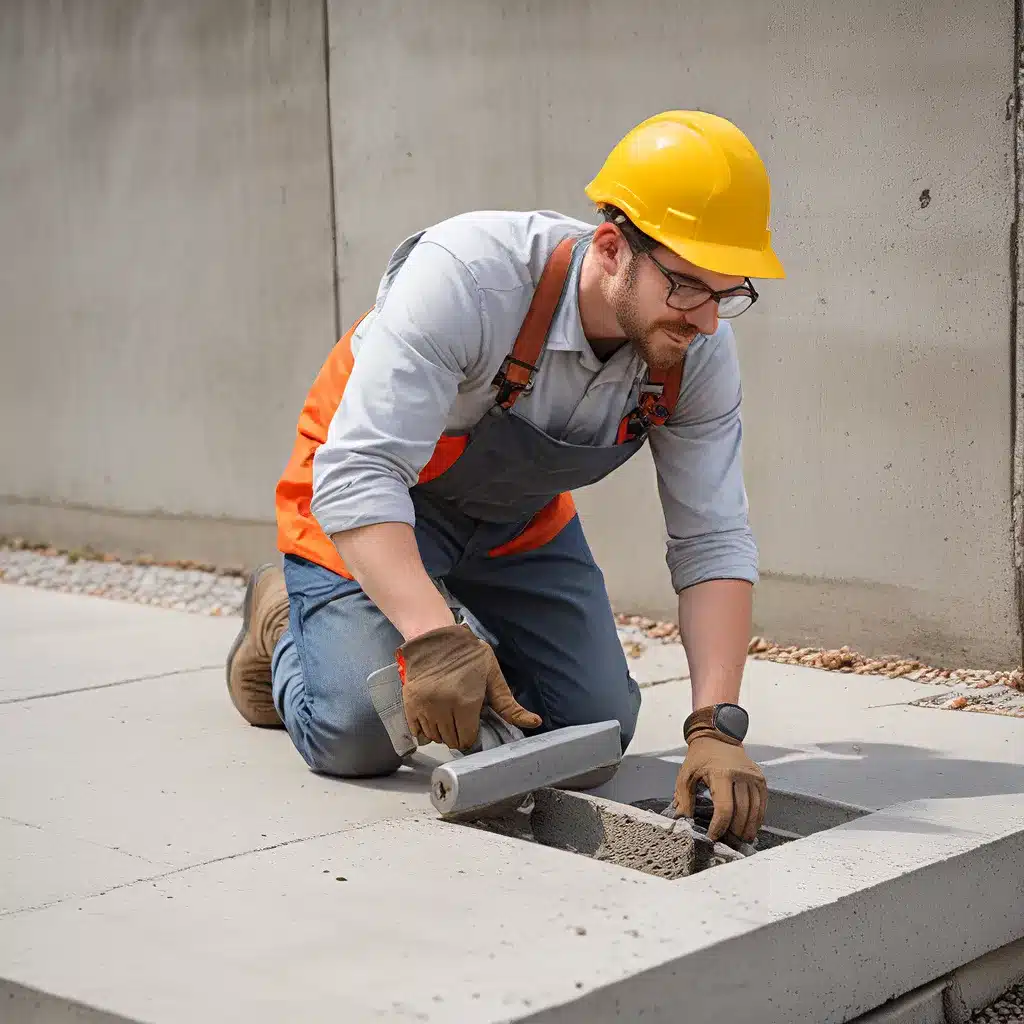
The Concrete Conundrum: Bridging the Talent Gap
Ah, the world of concrete – where the foundation of our civilized society quite literally lies. As the backbone of modern construction, the concrete industry is a vital cog in the machine that keeps our cities, roads, and infrastructure thriving. But lately, I’ve been noticing a troubling trend: a growing talent gap in the concrete workforce. It’s like trying to pour a sturdy foundation with a handful of toothpicks – the pieces just don’t fit together seamlessly.
Recent research from the Center for Strategic and International Studies has shed some light on this challenge, highlighting the critical role of human capital in maintaining a country’s competitiveness. And when it comes to the concrete industry, the talent pipeline seems to be running dry. It’s time to roll up our sleeves and get to work, because cultivating a skilled workforce is the key to unlocking the full potential of this essential industry.
The Talent Tug-of-War: Attracting and Retaining Top Concrete Professionals
As I delve deeper into this issue, I can’t help but feel a sense of urgency. The concrete industry is facing a perfect storm of challenges – an aging workforce, a lack of skilled labor, and a growing demand for specialized expertise. It’s like trying to build a skyscraper with a team of construction workers who’ve never held a hammer before.
According to a recent report from Deloitte, the shift towards skill-based hiring has become a critical strategy for organizations looking to build a competitive edge. And in the concrete industry, this couldn’t be more true. We’re not just looking for bodies to fill seats; we need a workforce that’s equipped with the technical knowledge, hands-on experience, and problem-solving skills to tackle the challenges of modern concrete projects.
But the talent tug-of-war doesn’t end there. Retaining these top-notch professionals is just as crucial. Concrete companies need to create an environment that fosters growth, development, and job satisfaction – because let’s face it, the competition for skilled labor is fierce. Offering competitive salaries, robust training programs, and opportunities for advancement is just the beginning.
Cultivating a Culture of Continuous Learning
So, how do we bridge this talent gap and ensure the concrete industry has the skilled workforce it needs to thrive? The answer, my friends, lies in cultivating a culture of continuous learning.
Embracing ongoing education and professional development is the key to keeping our concrete experts sharp, innovative, and adaptable. Think of it like sharpening a saw – the more we invest in honing our skills, the better equipped we’ll be to tackle the ever-evolving challenges of the industry.
Forbes Business Council recently highlighted 18 concrete ways to develop internal talent, and I couldn’t agree more. From mentorship programs and job rotations to tuition reimbursement and hands-on training, the possibilities are endless.
But it’s not just about providing the tools and resources – it’s about fostering a mindset that values learning and growth. Encouraging a culture of curiosity, innovation, and lifelong learning is paramount. After all, the concrete industry is constantly evolving, and the professionals who are willing to adapt and expand their knowledge will be the ones who thrive.
Leveraging Technology to Upskill the Concrete Workforce
As I dive deeper into this topic, I can’t help but notice the pivotal role that technology plays in shaping the future of the concrete industry. It’s like a secret weapon that can help us bridge the talent gap and keep our workforce on the cutting edge.
Imagine a world where virtual reality simulations allow concrete workers to hone their skills in a risk-free environment, where advanced analytics and data-driven insights empower them to make more informed decisions, and where collaborative online platforms facilitate knowledge-sharing and best-practice exchange.
Concrete RT Townsville, a leading concrete services and solutions provider, is already embracing this technological revolution. By investing in state-of-the-art equipment, implementing rigorous training programs, and fostering a culture of continuous improvement, they’re setting the standard for what a truly skilled and adaptable concrete workforce can look like.
The Ripple Effect: How Talent Development Strengthens the Entire Concrete Industry
As I ponder the importance of talent development in the concrete industry, I can’t help but see the bigger picture. It’s not just about individual companies or even the concrete sector itself – it’s about the far-reaching implications for our entire infrastructure and built environment.
When we cultivate a skilled, knowledgeable, and adaptable concrete workforce, the ripple effects are profound. Projects are completed with greater efficiency, safety, and quality. Innovations and best practices are shared, driving the industry forward. And ultimately, the communities we serve benefit from stronger, more resilient structures that stand the test of time.
It’s a powerful domino effect that can transform the concrete industry and, by extension, the very foundations of our society. So let’s embrace this challenge, roll up our sleeves, and get to work. Because when we invest in our people, we’re investing in the future of our built world – one solid, sturdy step at a time.

